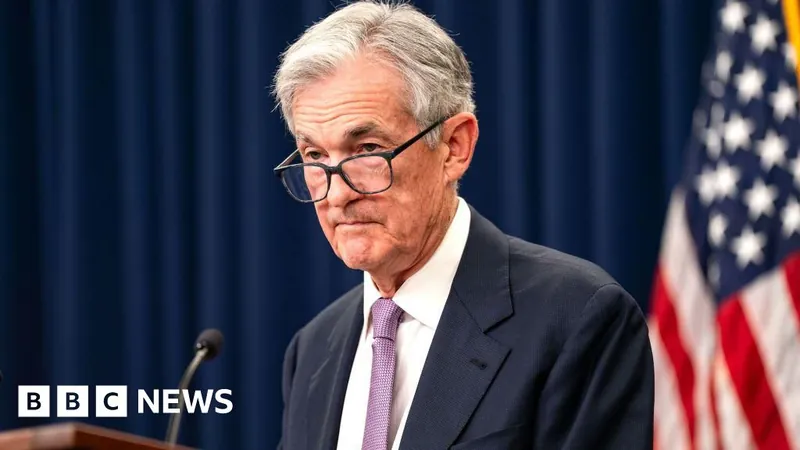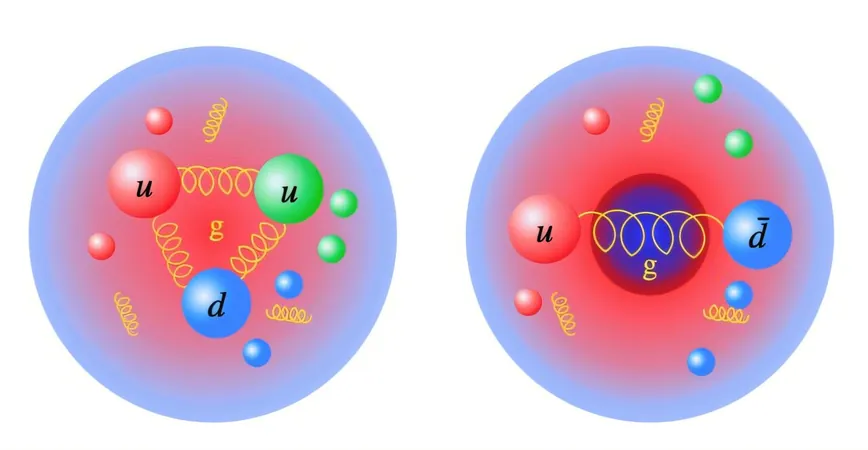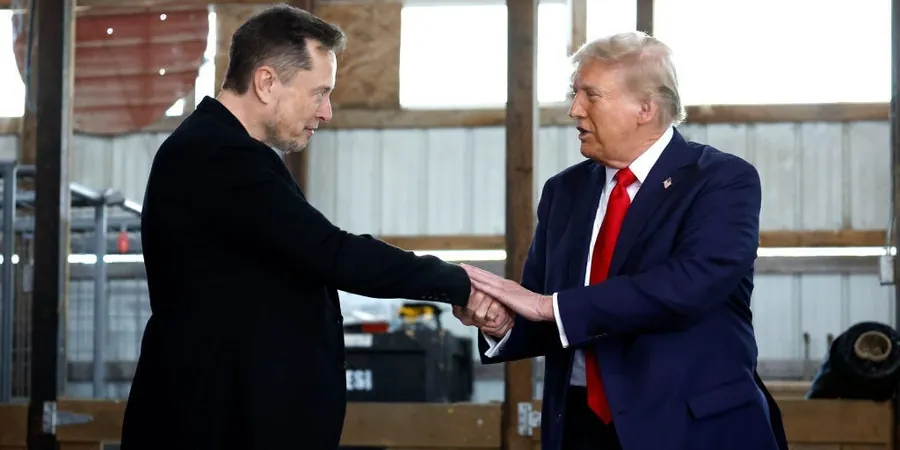
Jerome Powell Stands Firm: “Trump Can’t Fire Me!” The Real Implications for the Economy
2024-11-08
Author: Olivia
Introduction
In a bold statement that reverberated through financial markets and political spheres, Jerome Powell, the Chairman of the US Federal Reserve, has firmly declared that former President Donald Trump does not have the authority to dismiss him from his position. As speculation swirled about potential changes in leadership following Trump's return to political prominence, Powell reiterated his job security at a recent press conference following an announcement of a significant interest rate cut.
Powell's Position on Job Security
Powell emphasized that, under the law, he cannot be removed at the whim of the White House. His comments came after the Fed decided to reduce borrowing costs, bringing the key lending rate to a range of 4.5% to 4.75%. This development sparks curiosity as many economic forecasters predict further rate cuts in the future. However, they also highlight concerns about Trump’s proposed policies on taxes, tariffs, and immigration that might exacerbate inflationary pressures, complicating the economic landscape.
Impact of Trump's Proposed Policies
The former president has made headlines with his intentions to impose a minimum 10% import duty on goods, which analysts warn could translate to higher prices for consumers. Moreover, proposed tax cuts aimed at stimulating consumer spending might inadvertently fuel inflation. Coupled with his immigration policies that threaten to shrink the workforce, the economic implications could be staggering, driving borrowing and interest rates higher.
Market Reactions and Future Projections
As interest rates on US debt fluctuate in response to these political and economic uncertainties, Powell maintained that it’s still too early to assess how the incoming administration might affect the central bank's decisions. "We don't know what the policies are, we don't know when they will be implemented," he remarked. This leaves many investors and analysts on edge, hoping to glean insights into the Fed's forward trajectory amid a confusing political backdrop.
The History Between Powell and Trump
Remarkably, Powell's tenure as Fed chairman began under Trump’s administration in 2017, but it has been marked by tension, particularly as Trump publicly criticized Powell, labeling Fed officials as “boneheads” through social media. Despite Trump suggesting he may allow Powell to fulfill his term until 2026 if he agreed with his monetary policies, Powell is resolute in his assertion to maintain independence from political pressures.
Balancing Stability and Employment
In addition to monetary policy assessments, Powell revealed that the Fed is endeavoring to balance price stability with a healthy job market. As the labor market showed unexpected resilience in recent months, any deterioration in job growth — particularly with the recent hurricanes and strike actions affecting October's figures — could lead the Fed to reevaluate its approach more carefully.
Analysts' Perspectives on Future Cuts
Market analysts, including Whitney Watson from Goldman Sachs, suggest that while another cut may be on the horizon in December, uncertainties regarding fiscal and trade policies may lead the Fed to slow the pace of rate reductions in the future. "The road ahead is intricate, and the central bank will tread cautiously until the real impact of Trump's agenda becomes clearer," she noted.
Global Economic Perspectives
Across the Atlantic, similar sentiments were echoed by the Bank of England, which cautioned against overly optimistic expectations for borrowing cost reductions, warning of potential inflationary pressures in light of recent budgetary changes.
Conclusion
As the economic climate remains volatile, Powell's steadfastness in his role provides some assurance of continuity at the Federal Reserve, but the unfolding political developments under Trump's influence will undoubtedly shape the trajectory of monetary policy in the months to come. Will Powell's independence withstand the pressures of this shifting political landscape? Only time will tell.









 Brasil (PT)
Brasil (PT)
 Canada (EN)
Canada (EN)
 Chile (ES)
Chile (ES)
 España (ES)
España (ES)
 France (FR)
France (FR)
 Hong Kong (EN)
Hong Kong (EN)
 Italia (IT)
Italia (IT)
 日本 (JA)
日本 (JA)
 Magyarország (HU)
Magyarország (HU)
 Norge (NO)
Norge (NO)
 Polska (PL)
Polska (PL)
 Schweiz (DE)
Schweiz (DE)
 Singapore (EN)
Singapore (EN)
 Sverige (SV)
Sverige (SV)
 Suomi (FI)
Suomi (FI)
 Türkiye (TR)
Türkiye (TR)